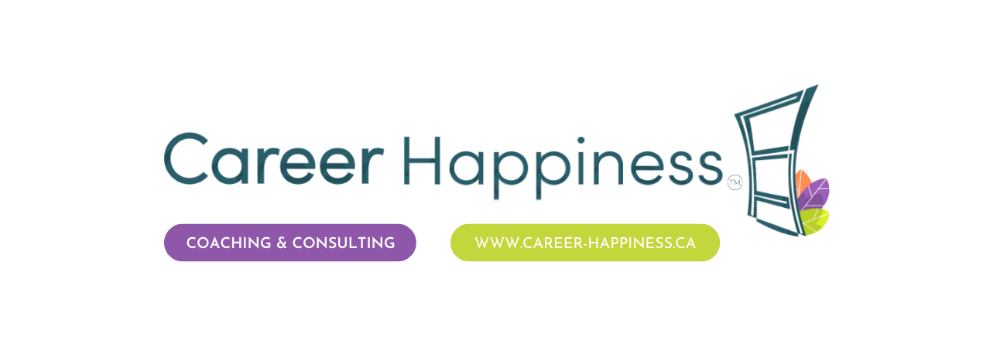Work-Life Balance: Prioritizing Mental Health During a Career Transition
Sep 29, 2025
When you’re in the middle of a career transition, your mental health is the single most important thing.
Whether you’re unemployed and waiting to land your next opportunity — or you’re in a role you loathe and you’re ready to move on, it’s pivotal to know how to manage the overwhelm of it all.
In this article, I’ve put together some practical tips you can use to stay resilient and energized in the in-between. These are the same guidelines I share with my Career Happiness clients, and I truly hope they serve you.
Let’s take a look.
1. Identify your stress triggers
Get to the bottom of what specifically triggers your stress.
Maybe it’s financial pressure, family expectations, or job insecurity that’s weighing on you. Naming your stressors gives you a starting point so you can tackle them in a healthy way.
For example, if financial pressure is a stressor, try setting a realistic budget or planning small financial milestones. This helps you relieve some of the pressure and feel more in control.
It’s also common to feel overwhelmed if you’re comparing yourself to others. It’s so important to remind yourself that everyone’s journey is unique.
Try this mantra: “Other people’s successes have nothing to do with my own potential. We each have our own strengths and opportunities for success.”
2. Set realistic goals to ease the pressure
Set achievable goals to reduce the strain. Break up your big ambitions into smaller, more manageable milestones to make the process feel more achievable. This also supports you to celebrate progress along the way. (More on this in a bit.)
For example, if you’re anxious about gaining relevant experience in a new field, start with small steps.
You could volunteer or take on freelance projects (even for a few hours each week) to build up your resume and confidence.
3. Prioritize self-care for mental resilience
Put self-care on your to-do list.
When you’re job hunting, attending interviews, or adjusting to a new role, taking care of yourself can often fall by the wayside. Scheduling activities that help you relax and recharge is vital to protecting your well-being.
For instance, schedule a 15-minute “mental health break” each day — where you can go for a walk, practice deep breathing, and stretch your body.
Here are some other ideas:
- Cook your favourite dish or make that perfect cup of team and sit still
- Practice gratitude journaling or mindfulness meditation
- Take a warm bath and listen to calming music
- Go to the gym to lift weights or join a class
You can also set aside a longer time (maybe 30 minutes to an hour, or more if you can) to do one of your favourite hobbies. Or to try something new. For instance, you might join a basketball league, take up pottery, or learn how to cook new recipes.
4. Manage imposter syndrome
Ignore imposter syndrome like the plague. It’s there to keep you “safe and small,” not to help you achieve your goals.
Career transitions often bring this on because you’re on your way toward growth. You might get a sinking feeling that you’re somehow not qualified, despite your skills.
Combat this by actively reminding yourself about your accomplishments. Look through your resume and the previous successes you’ve had. You did all of that! You put in the time to build those skills and wins!
You can also create a more in-depth achievement log inspired by your resume and career history. Record your past milestones, skills, and any challenges you’ve overcome. Whenever self-doubt strikes, look back at your achievement log. This serves as a personal reminder of your growth and helps shift your focus from doubt to confidence.
Another way to build confidence is with positive affirmations. Repeat to yourself, “I’m qualified and smart” and “I believe in my abilities.” (And any other declarative statements that can help you flip the script.) Consider writing these on post-its and putting them on your bathroom mirror, refrigerator, or another part of your house you walk by often. When you see your notes, stop and recite. Over time, you’ll build a new internal narrative that shifts the focus to your strengths — not your weaknesses.
5. Create a supportive network
Surround yourself with support. Reach out to friends, family, or a career mentor who understands your journey.
You can also look into groups or communities — both online and in-person — where you can connect with others facing similar challenges.
New graduates, for instance, may feel alone in their job search. Joining a local professional group, LinkedIn community, or attending networking events can help them build connections with others in the same boat.
6. Build a structure to balance work and personal life
Create a set structure to help you juggle both work and personal time. Being proactive helps you protect yourself from burnout while still staying focused on your goals.
For example, create a schedule where you unplug at a set time each evening. If you finish work or job hunting at 6 pm, plan a personal routine at the end of the day. This might be a long walk with your family or reading time by yourself.
7. Find small joys to stay motivated
Look for simple ways to give yourself a mental boost and stay focused on your end goal.
One of the best ways to do this is by celebrating your small wins.
A small win could be as simple as finishing a round of job applications or scheduling an interview on your calendar. Reward yourself with something you enjoy afterward.
For instance:
- Try a new coffee shop or local bakery
- Treat yourself to a face mask
- Meet up with a close friend
- Enjoy your favorite dinner
- Take a short day trip
- Watch a TV show
8. Practice gratitude to shift your mindset
Reflect on what you’re thankful for to create a more grounded perception.
For example, at the end of each day, list three things you’re grateful for related to your career journey. It could be a new connection, a learning moment, or simply making progress on an application.
Be sure to also jot down other things you’re grateful for — like your loved ones, pets, and friends. (Even remembering to be thankful for simple pleasures, like a warm bed, good food, and clean water helps to shift your mindset.)
You can also purchase a gratitude journal online with prompts to help guide your practice.
Wrap up
Being in the middle of a career transition can bring on extra stress and overwhelm. From managing stress triggers and imposter syndrome to building a supportive network, these small, intentional actions build both mental resilience and momentum.
Be patient with yourself, and remember that each step, no matter how small, brings you closer to a fulfilling career.
And if you need help gaining clarity or finding the right path, I have a course you’ll love.
Sign up to get the support you need Or book your free intro call now.


